The Most Underrated Science Fiction Films of the 1980s
The 1980s had some huge sci-fi blockbusters, and some great underrated hits as well!
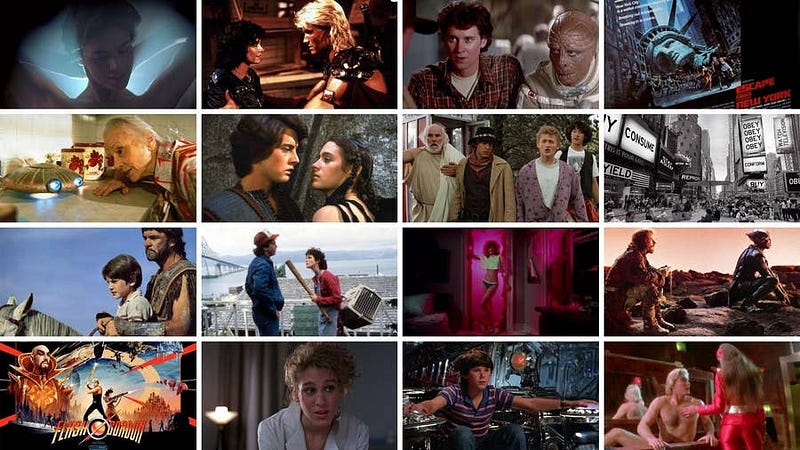
The 1980s was one of the best years for science fiction, with blockbuster after blockbuster alighting on the scene.
From Aliens, to E.T., to the final Star Wars, this was an immense decade for brilliant science fiction. The 1980s had everything from the most hopeful optimistic forward-looking work, to the darkest horror, to the strangest cheesy trope-ridden extravaganzas like RoboCop.
The films I try to bring to light here are all something special, movies that offered something grand yet never quite managed to pop onto the top of the public consciousness at the time. Many have since become cult classics, with some hotly contested, but all are in some way underrated gems of a unique point in time.
As always, with these articles, I love hearing your feedback in the comments section. Let me know what your favorite films of the decade were, which ones you think I should have included, and which you hope I’ll mention in one of my next decades!
Flash Gordon (1980)
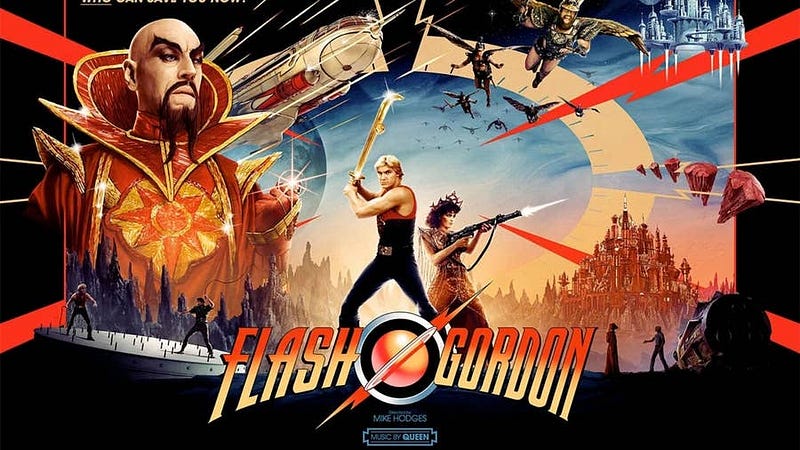
When the evil Emperor Ming the Merciless bends all his will upon the destruction of Earth, it’s up to star quarterback Flash Gordon and his allies Dale Arden and Hans Zarkov to save the day by uniting the politically fractured people of the planet Mongo!
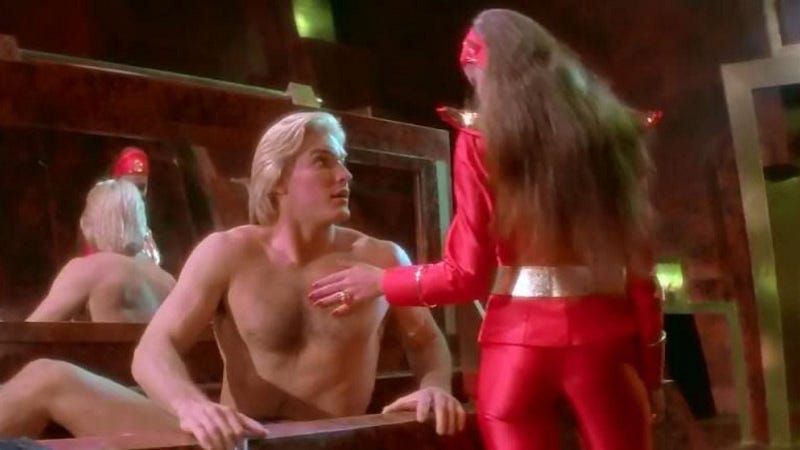
Flash Gordon is an incredible cult masterpiece with a full soundtrack by legendary rock group Queen. It’s definitely a cult film, definitely something wacky and cheesy, but it knows how wacky and cheesy it is and that’s what makes it so dang shiny.
Escape from New York (1981)
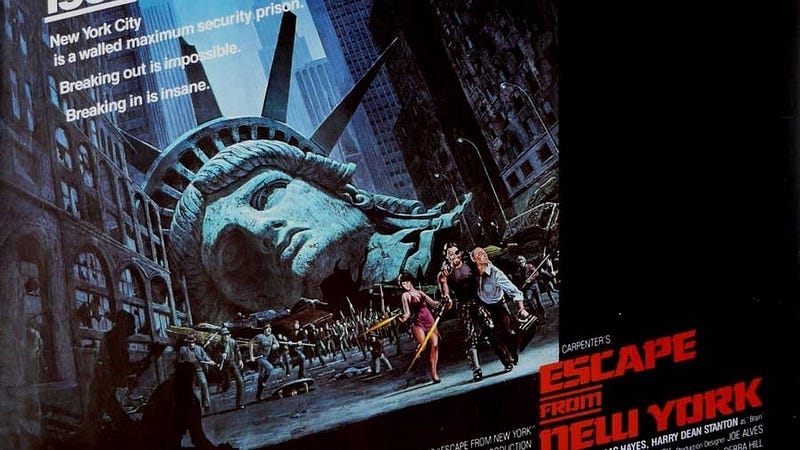
In the future, New York has become a high-security prison, a zone from which no prisoner ever escapes. But, when a VIP gets stuck inside, it’s up to grizzled ex-military anti-hero Snake Plissken to get him out within 24 hours… lest the world find itself embroiled in a new nuclear war.
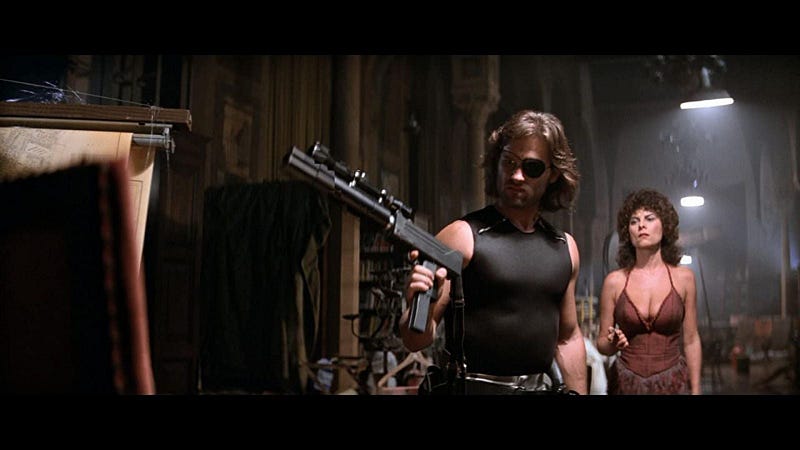
Escape from New York is one of John Carpenter’s great sci-fi action films. It’s become an iconic cult film, and was a hit during its initial release as well.
This is probably the best-known film on this list, but it often still just gets relegated to “another B-movie” for the average viewer. But, in reality, Escape From New York a superb little ride and a continual inspiration for everything from William Gibson’s Neuromancer books (that kicked off the cyberpunk genre) to the Metal Gear series of video games.
Time Bandits (1981)
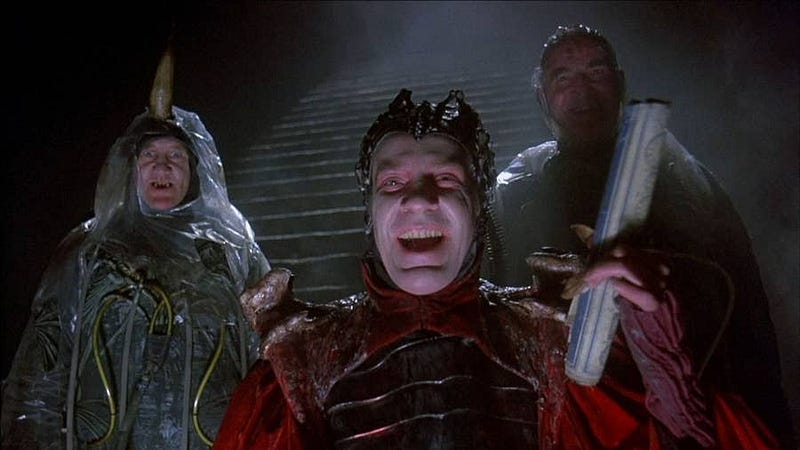
Terry Gilliam’s masterpiece (one of many) that explores the realities of the imagination, and the imagination of realities. When an armored knight bursts through eleven-year-old Kevin’s wardrobe in the middle of the night, an adventure beyond compare bursts to vibrant life.
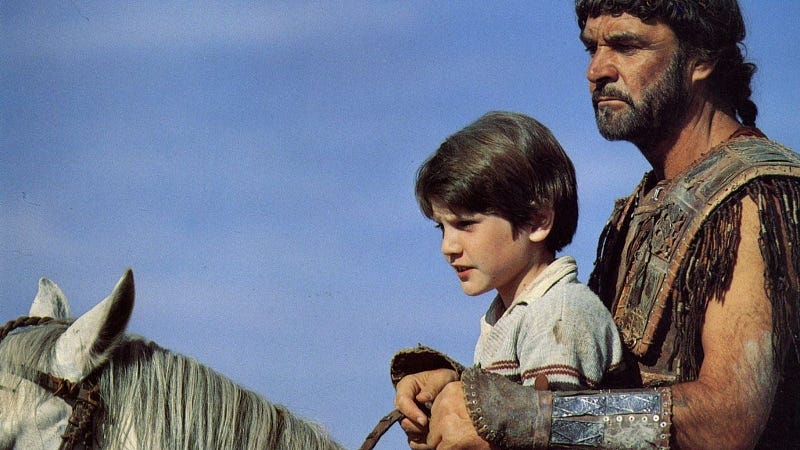
Time Bandits is the first of Terry Gilliam’s “Trilogy of the Imagination”, an exploration of our problematic and stifled society through the lens of brilliant imagination — with all the darkness and light that such a perspective brings. The second two are Gilliam’s better-known Brazil (1985) and his The Adventures of Baron Munchausen (1988).
The Last Starfighter (1984)
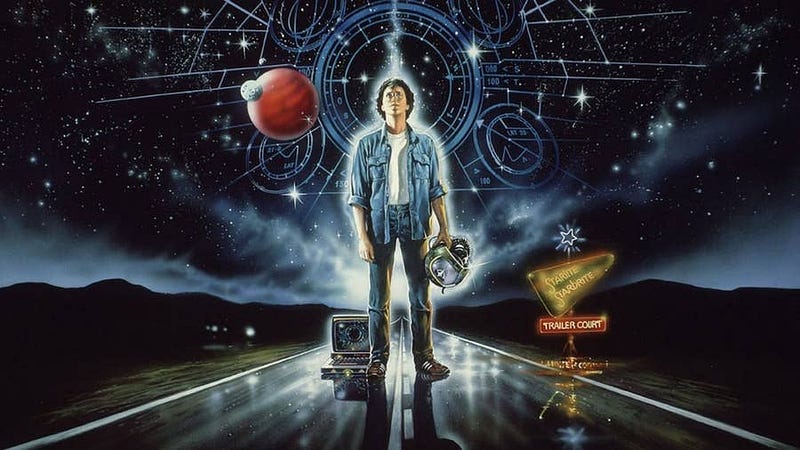
Alex Rogan is an ordinary enough teen. Living in a trailer park, he longs for escape from a life of normality and pauperism, but finds that society’s trap is too-well constructed to allow his dreams to come true. But the universe has other plans for Alex, and ends up getting picked to be Earth’s representative in a titanic galactic struggle of good vs evil.
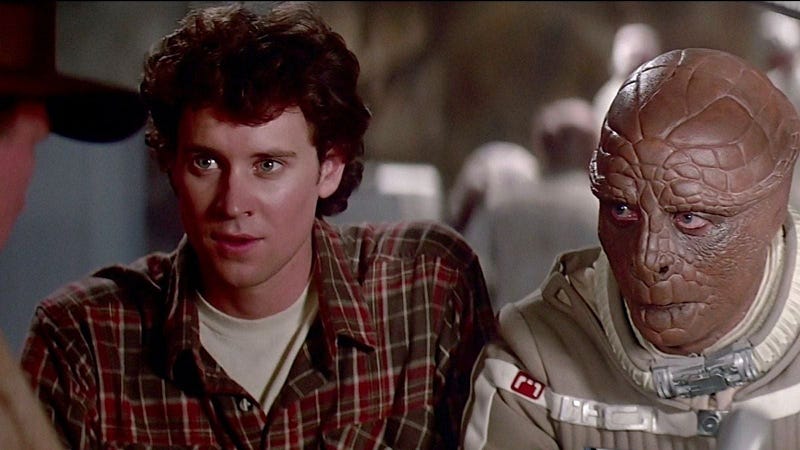
The Last Starfighter is one of those superb and unexpected films that just captures something magic. Despite being made as, essentially, one big advertisement for a game system, it just-so happened to be one of the greatest underdog hits of the 1980s science fiction landscape. Since it’s release, it’s become a novel, a video game, and (in 2004) a hit off-Broadway musical.
Dune (1984)
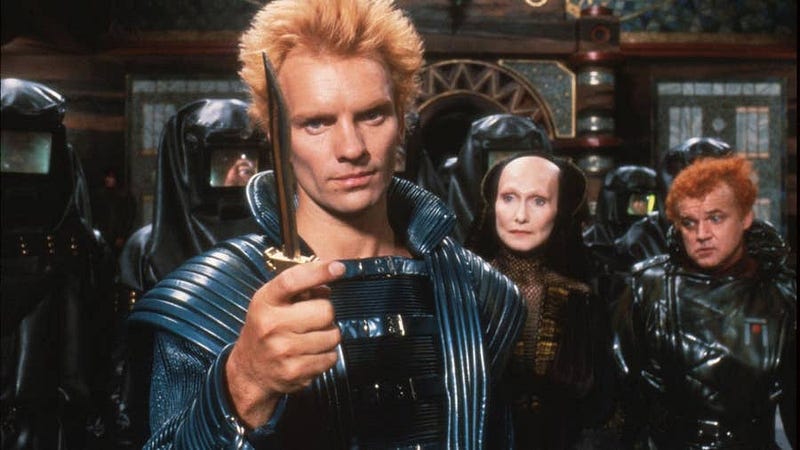
The galaxy hangs in a web of plots and power, with one world at the center of it all. That world is Arrakis… also known as… Dune.
Young Paul Atreides ventures to this world with his parents, his noble family suddenly in control of this most precious of worlds and its single priceless export: the Spice, which allows for the bending of space and time and travel between the stars.
But plots lie within plots on Arrakis, and the grim specter of war looms over all… a war so vast that Paul fears it might encompass the entire galaxy and turn all he loves to ash.
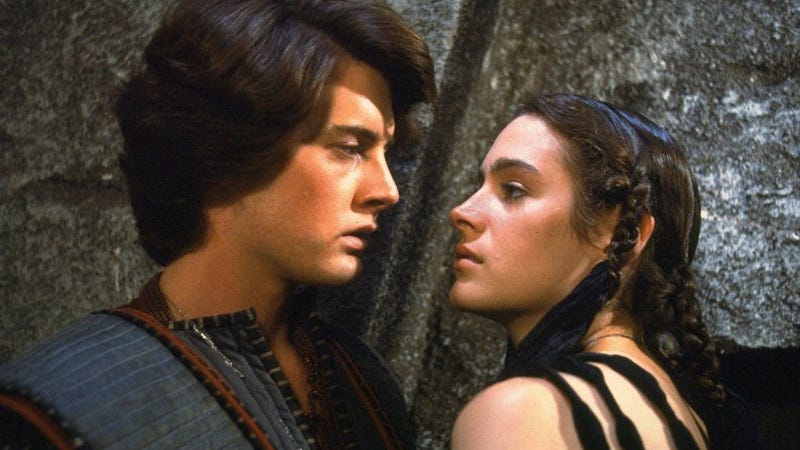
Dune is a film that polarizes people, mainly because of the changes that were made to the story by the ill-conceived meddling of the producers. Lynch wasn’t a fan of science fiction and had never read the book, making his approach different from the brilliant-but-unrealized work of director Alejandro Jodorowsky, who first tried to adapt the sprawling novel.
Dune bombed in theaters and in critics’ columns, in large part because of its massive deviations from the novel, which negated much of the impact of that genius story.
What emerged, however, was an aesthetic masterpiece, with some of the best stylization of any Dune adaption thus-conceived. With a superb cast, an incredible soundtrack, and stunning visuals that broke the mold in terms of what science-fiction could look like and do on the screen… Dune remains a flawed masterpiece.
The plot of this film, too, while undoubtedly inferior to Herbert’s original, isn’t as “incomprehensible” as some reviewers thought. A viewer merely needs to go in without prior expectation and with enough cunning to read the subtitles that only existed in off-hand lines, side-glances, and the moments in-between moments where storytelling through inaction was allowed to shine.
The book series is one of my personal favorites of all time. I think that the 2020s brilliant take on the Dune story is, by far, the best in terms of adhering to the plot while re-envisioning certain elements to better connect to modern social views and critiques. But this classic version gained a dedicated cult following over the years, from those, like me, who appreciate it as a flawed jewel, a unique gem in the landscape of science fiction films.
Weird Science (1985)
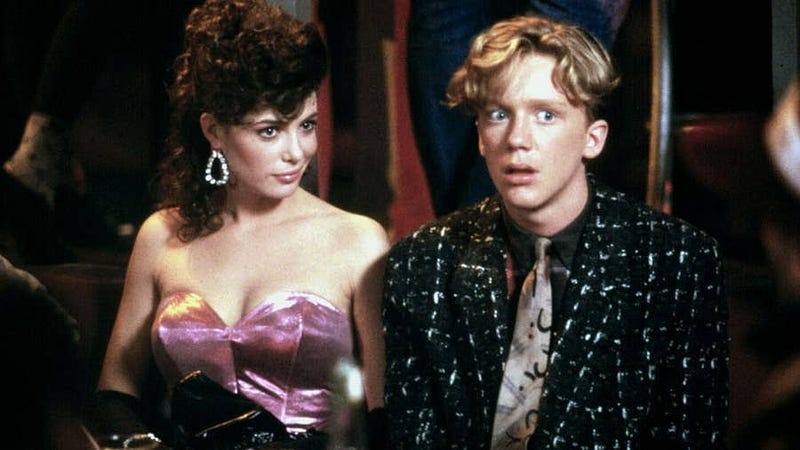
John Hughes made some brilliant films in his career, but none weirder than this! Gary Wallace and Wyatt Donnelly are nerdy teens who have some serious hormones firing them up, but thanks to constant humiliations by jocks, they don’t stand a chance with the girls. What else are two nerdy geniuses supposed to do but make their own, Frankenstein-style (but without all the icky digging bodies up).

Weird Science doesn’t sit as well with modern audiences as it did in the 1980s — and it didn’t make critics back them fall over themselves, either. However, the film has a certain zany charm, and, largely thanks to Kelly LeBrock, the film gets elevated from something quite droll to something that kinda-almost works.
Enemy Mine(1985)
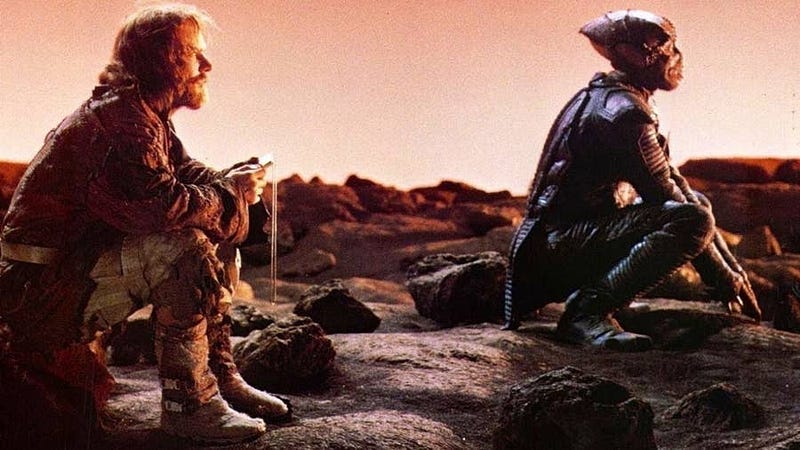
In the far future, humanity is at war with an alien species that shares nothing in common with us… or, at least, that’s what military pilot Willis E. Davidge believes.
But, when he ends up crash-landed on an alien world with only one of his sworn enemy for company, both Willis and his counterpart learn that the differences they thought divided them might be what give them the strength to survive together.
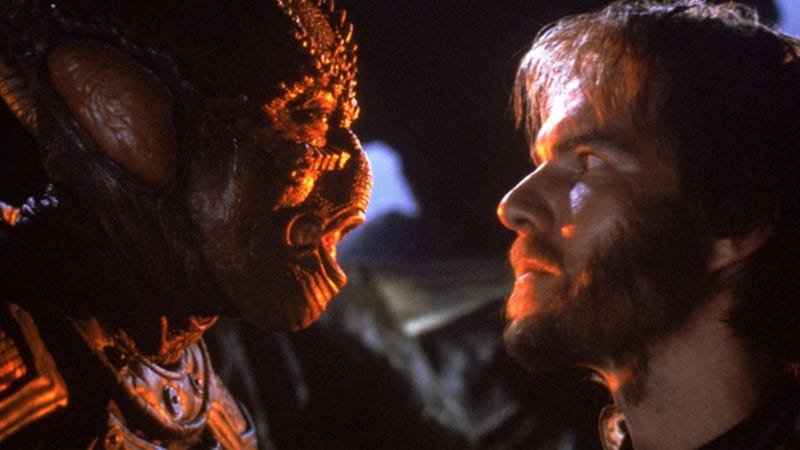
Enemy Mine bombed big time in the United States but, weirdly enough, became an incredible and massive success in the former Soviet Union as the first Western sci-fi film shown in theaters! It’s still a cult-classic film, with a worldwide following now, and deservedly sits on this list of under-appreciated and underrated science fiction classics.
Cocoon (1985)
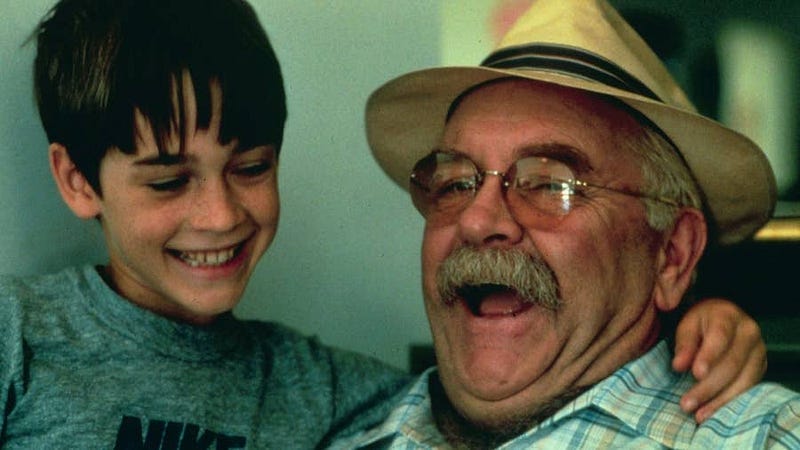
When three residents of a retirement home sneak into a private home’s pool for an evening swim, they discover something incredible: they feel healthier, younger, and more vibrant than they have for years. The secret to this mysterious rejuvenation is 10,000 years in the making and comes from another world.
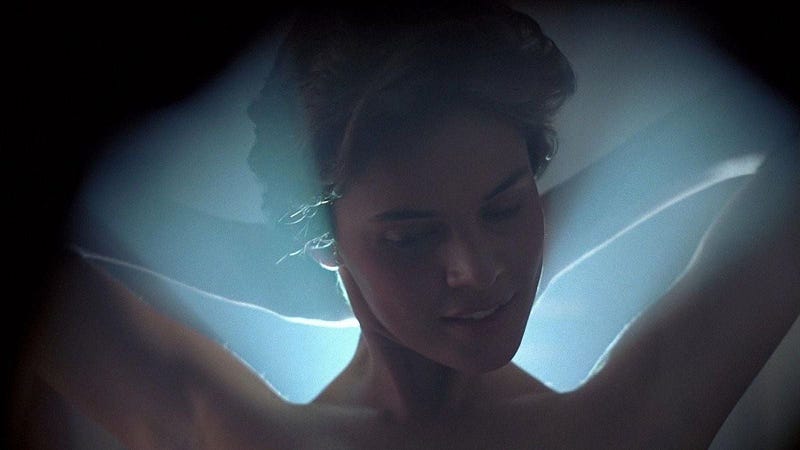
Cocoon is one of the most heartwarming and brilliant little science fiction films of the 1980s, a tale of love and death, aging and rebirth. It did get sequels and now has a strong cult appeal, but it’s still wildly undervalued for how sweet and well-done it actually is.
Short Circuit (1986)
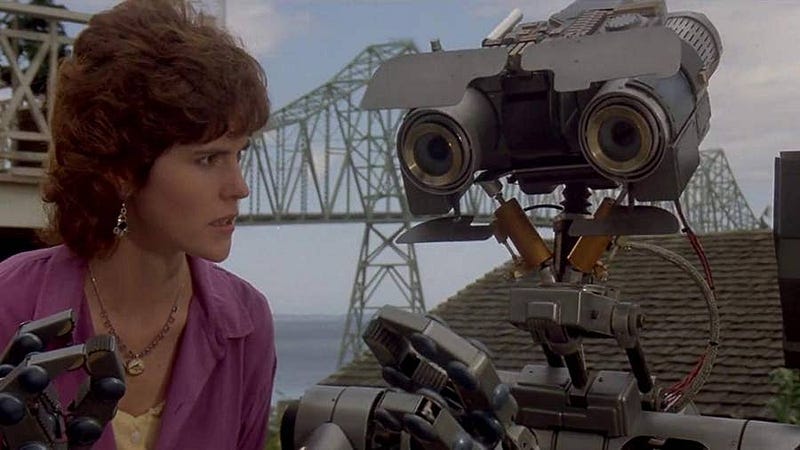
An experimental military robot has vanished, which causes no small amount of alarm, in large part because the robot carries enough firepower on its back to level half a city. But this particular robot has something else as well, a growing seed of consciousness which cannot be denied.

Short Circuit makes for one of my all-time favorite films, a lesser-known classic by John Badham, the director of WarGames. It’s a thrilling adventure, a moving comedy, and a stirring indictment of the military industrial complex — everything one needs in a film.
Flight of the Navigator (1986)
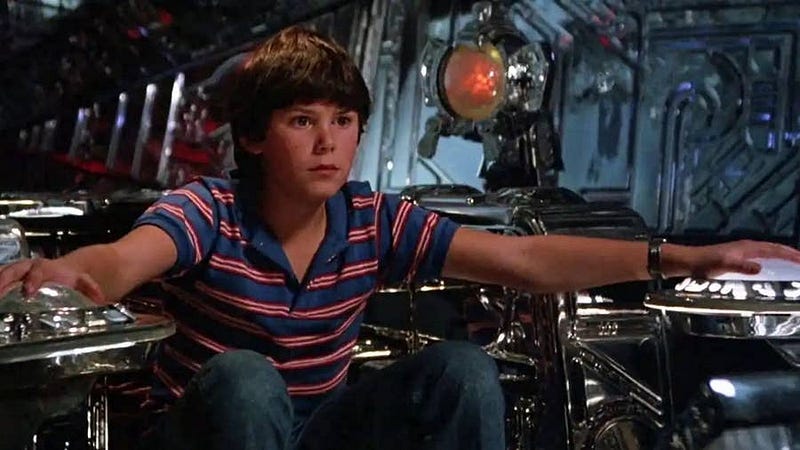
David Freeman is an ordinary 12-year-old boy until an alien spaceship abducts him. Then, everything goes haywire for David as he finds himself in the role of the lifetime, and the speed-demon journey of every hot-rod’s dreams. Only he can get the ship safely home again, as long as he doesn’t crash along the way.

Flight of the Navigator is one of those excellent little science fiction films made for younger audiences that just happens to still be fun for older audiences as well. It carries the same sort of unique spark that made other films, like the 1997 Star Kid work so darned well.
Masters of the Universe (1987)
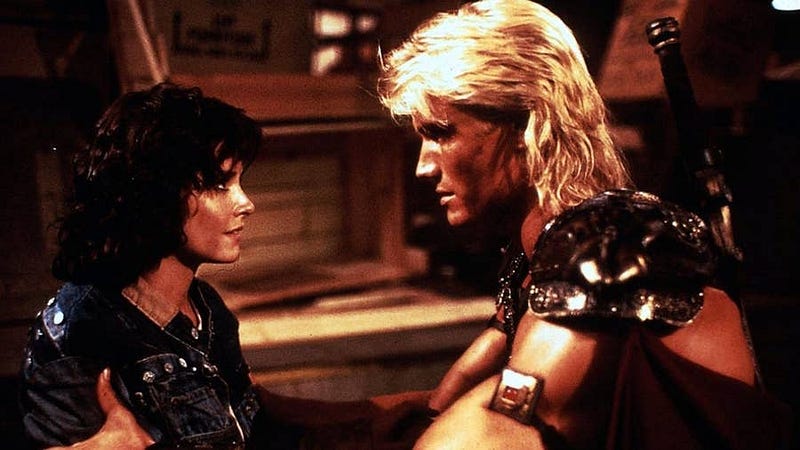
When He-Man, recently arrived on Earth from the planet Eternia, encounters two teenagers, he finds that his only hope to defeat the vast and powerful evil tracking him across the cosmos might be two kids, a small-town cop, and the contents of a music store.
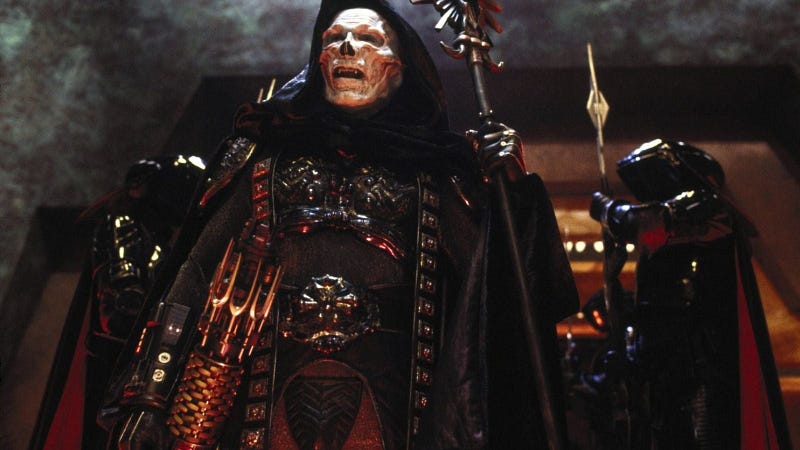
Masters of the Universe is a piece of grade-B genius, a brilliant little explosion of classic science-fiction cheese. It’s one of my favorite such cheesy films, and yet doesn’t get mentioned half as much as it should.
Batteries Not Included (1987)
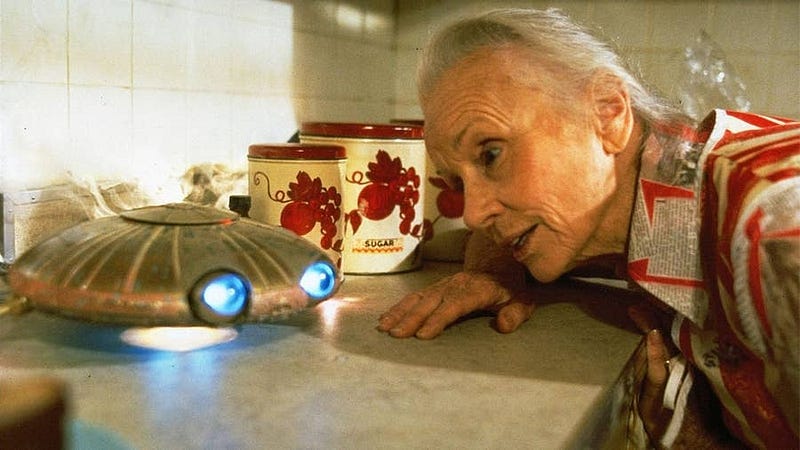
Steven Spielberg liked the script for this so much that he took it under his own wing and made it a solid little gem of a movie.
An apartment building in New York’s East village is under attack from money-grubbing developers who don’t care about the poor people who call it home. Luckily for these residents, something out of this world is about to arrive.
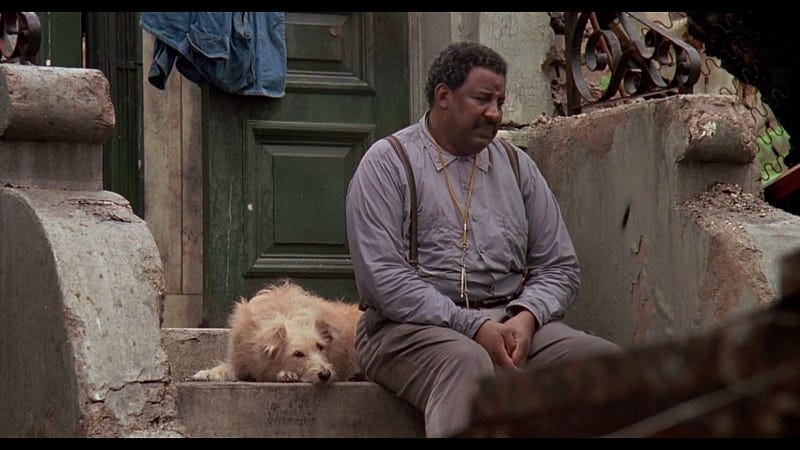
Batteries Not Included is probably one of the most heartwarming anti-capitalist stories ever made, a tale of working-class solidarity in the face of callous business-minded America… with aliens. Seriously, though, it’s a really sweet film that doesn’t get anywhere near enough love.
Innerspace (1987)
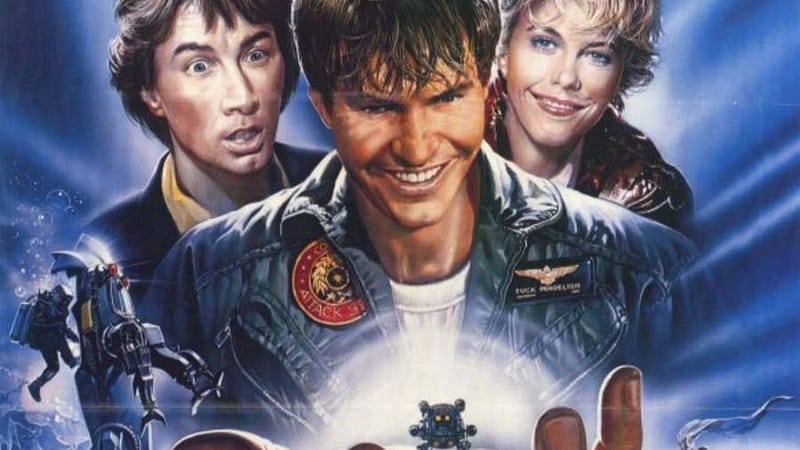
Lt. Tuck Pendleton isn’t making it in the military, but when he resigns his commission to sign up for a top-secret military science project, he gets more than the fresh start he’d bargained for.
Now microscopic in size, he’s accidentally stuck inside the body of Jack Putter, a Safeway grocery clerk who suffers from a paralyzing fear of… well, everything. On the run from an evil organization and also running out of air, this is one wild pint-sized ride.
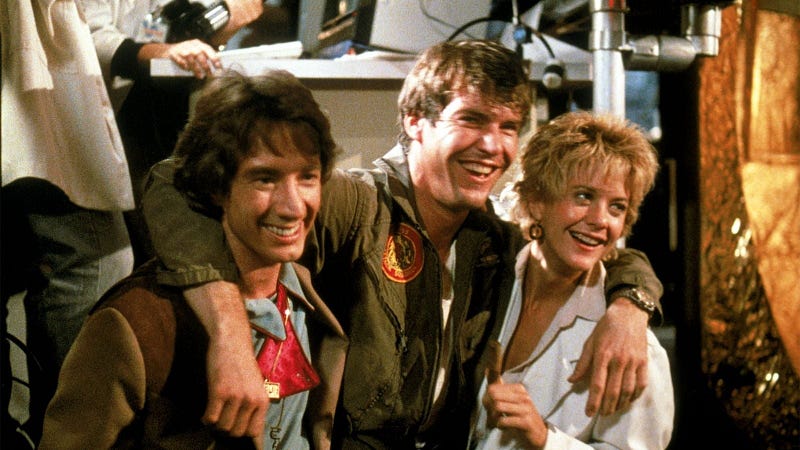
Innerspace is a delightfully ridiculous romp through the bowls of grade-B science fiction comedy. It’s a blend of classic slapstick with an equally classic science fiction plot, and with the lead actors’ carrying all the weight, it manages to be something undeniably fun.
They Live (1988)

Based on the 1963 short story “Eight O’Clock in the Morning” by Ray Nelson, this John Carpenter film follows an unnamed drifter played by Roddy Piper who discovers a pair of sunglasses that lets him see the truth behind the world — a truth nobody is prepared for and one that affects the entire world.
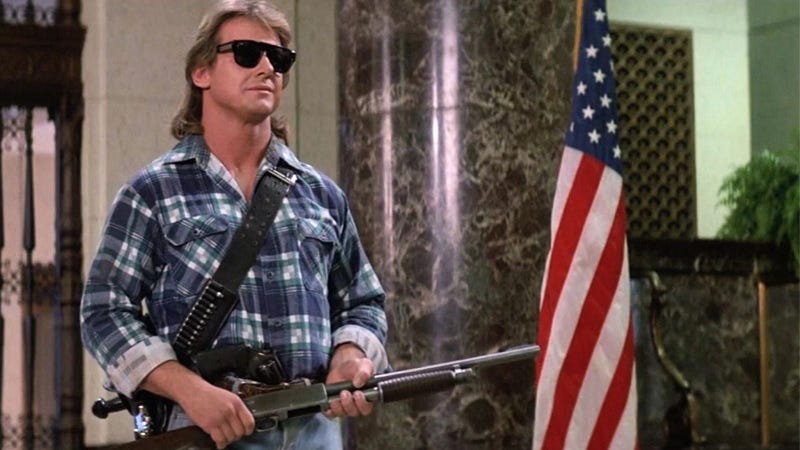
They Live captured something very true about 1980s life, something true about the whole nature of our society — and it just did so through the conceit of science fiction.
They Live is one of John Carpenter’s greatest films, a brilliant little self-reflexive film that suggests our society is far shallower and darker than we could believe. It also features some of the greatest one-off grade-B lines, some of the best music, and one of the best fight scenes of all time.
Personally, I rank this as one of my all-time favorite films.
Bill & Ted’s Excellent Adventure (1989)
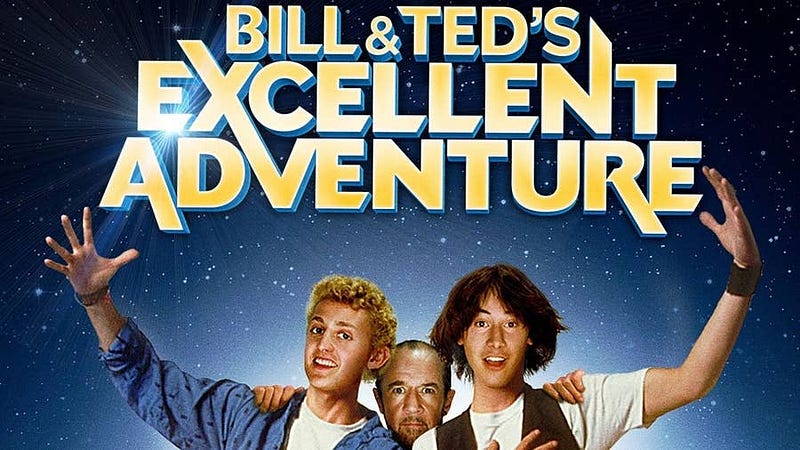
Teenage Bill and Ted are only interested in making music, but not interested enough to actually learn how to play.
They’re also not interested in getting good grades in school. At least, not until Ted’s police chief father threatens to send him to a military academy for boys.
Desperate to ace their coming history exam and avoid a fate most unbecoming, the two are met by a traveler from the future named Rufus, who tells them that more might be at stake than they could ever realize.
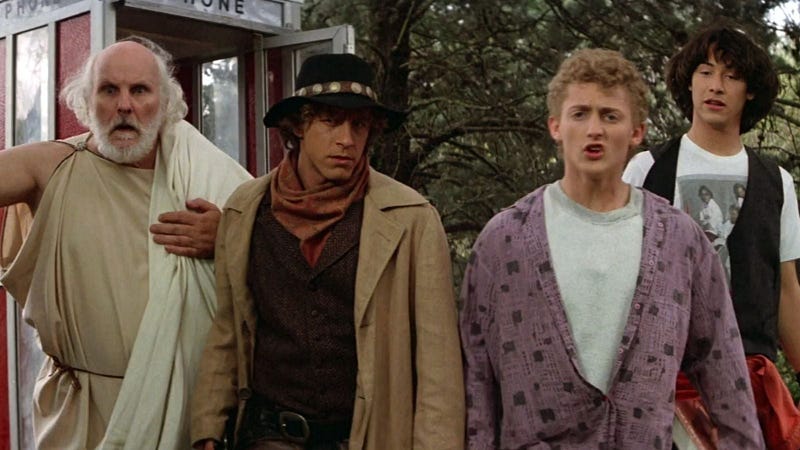
Bill & Ted’s Excellent Adventure is more bodacious, more extraordinary, more non-bogus than you will believe. It’s a glorious and hilarious look at history, as well as an earnestly optimistic dream of a weird-but-hopeful future beyond anyone’s wildest dreams.
Hi there! I’m Odin Halvorson, an independent scholar, film fanatic, fiction author, and tech enthusiast. If you like my work and want to support me, please consider subscribing to a paid tier for as little as $2.50 per month!
